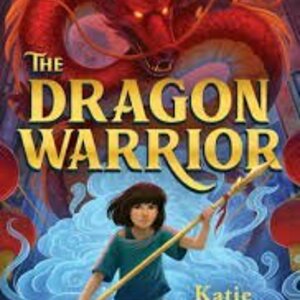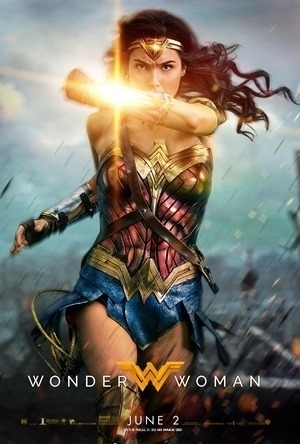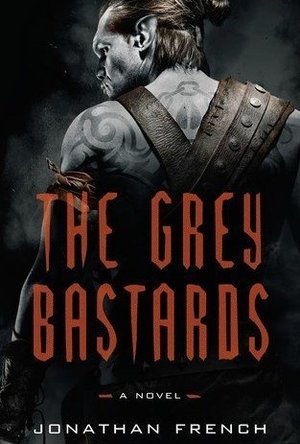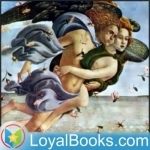
Myths and Legends of Ancient Greece and Rome by E.M. Berens
Podcast
Silver footed, fair haired Thetis, Ares the God of War, Nike the Goddess of Victory, The Furies and...
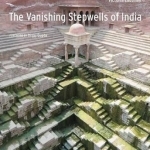
The Vanishing Stepwells of India
Victoria Lautmann and Divay Gupta
Book
Some of the most stunning architectural structures in India are to be found below ground: these are...
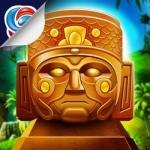
Wonderlines: match-3 puzzle game
Games
App
Once, during an expedition to South America, a famous archaeologist found some strange hieroglyphic...
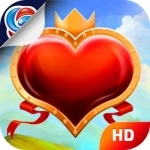
My Kingdom for the Princess HD
Games
App
It offers plenty of hours of entertainment in a simple resource management framework, making it an...
Sophia (Bookwyrming Thoughts) (530 KP) rated The Dragon Warrior in Books
Jan 23, 2020
<h2><strong><em>The Dragon Warrior</em> is such a fun and delightful read</strong></h2>
<strong>I'm 1000% sure the middle school me who got swallowed by </strong><em><strong>Percy Jackson & the Olympians</strong></em><strong> would devour this book</strong> as quickly as she inhales all the dumplings, stuffed buns and dim sum. (Look, they're comfort food.) <em>The Dragon Warrior</em> really brings back the nostalgia of those times. <strong>Katie Zhao wrote a beautiful novel that promises fun and adventure featuring Chinese mythology.</strong>
Zhao's debut novel follows twelve-year-old Faryn Liu as she is revealed to be the Heaven Breaker after she crosses paths with a demon during Lunar New Year Festivities. She and her companions set off on a quest across various Chinatowns to find the island of immortals so she can prove she is worthy to take on the role.
But both she and her brother are outcasts in the Jade Society and have been treated as such for years. To the members in her local Jade Society, she's not worthy of such an important role and it's not something she plans for either (does any twelve-year-old though?). But despite frequently thinking about ròu bāo zi (I don't blame her; meat dumplings are delicious), Faryn readily steps into the role even if she might know what she's doing or feel ready to potentially command an army.
<h2><strong>Full of adventure and humor</strong></h2>
<strong><em>The Dragon Warrior</em> is a huge nod to my childhood, featuring various deities and other well-known figures from Chinese mythology.</strong> They're full of wit and sass that brought a constant smile to my face as they aided or deterred Faryn and her companions in the quest. The novel brings in aspects of family, tradition and honor, all of which are important parts of Chinese culture. It's clear throughout the novel Faryn has a strong bond with not just her brother, but also her Ye Ye.
<strong>Zhao's debut novel is a fast-paced, page-turning adventure that is chock full of humor</strong>; it's easy to forget this is a debut as this is extremely well-written, and I loved every second of it. Honestly, the only thing I'm disappointed is there probably won't be any sequels. (Someone please tell me there will be one???) <strong><em>The Dragon Warrior</em> is an engrossing story featuring Chinese mythology and tying in various aspects of the culture; </strong>I highly recommend this to Chinese American readers who want to see themselves in a world where Chinese mythology clashes into the modern world.
<a href="https://bookwyrmingthoughts.com/the-dragon-warrior-by-katie-zhao/"; target="_blank">This review was originally posted on Bookwyrming Thoughts</a>
Sophia (Bookwyrming Thoughts) (530 KP) rated Fire and Bone (Otherborn, #1) in Books
Jan 23, 2020
<strong>I can't tell if I'm <em>actually</em> disappointed with <em>Fire and Bone</em> or if I <em>feel</em> disappointed with the book.</strong>
I started Rachel A. Marks's new book right after I finished <a href="http://theartsstl.com/rin-chupeco-the-heart-forger-sourcebooks-fire/"><em>The Heart Forger</em></a>, and I was very much ruined for other books at the moment in time because Rin Chupeco's book was <em>that</em> good.
<strong><em>Fire and Bone</em> is the first novel in Marks's <em>Otherborn</em> series, which is based on Celtic mythology and set in modern-day Los Angeles.</strong> The story follows Sage, who struggles to live on her own in the streets and has the urge to burn things until she finds out she is the daughter of a Celtic goddess.
Sage is very independent - we've got the kid goes through a rough childhood and gets shifted around from foster home to foster home until they say, "Screw it!" and go off on their own (because who has time for rough homes?) trope. The one friend in her life is Ziggy, at least until she is plucked into the Otherworld where she eventually has to pledge her allegiance to one of the five main deities, known as houses.
I'm a huge fan of books that focus on character, plot and action, so <em>Fire and Bone</em>, being the first in a series, won't be a novel that I will enjoy as much compared to my reactions when (and if because so many books) I read the sequels. <strong>This novel is more of a setup - there is a lot of information about the world</strong> (though certainly not an information overload) that is revealed as Sage navigates the Otherworld and is getting attention from her bodyguard and a prince. She also tries to uncover the past that is revealed to her through dreams.
There's no surprise that <strong>there seems to be a love triangle of sorts that will most likely reveal itself</strong> in future novels. The interactions between Kieran, Faelan and Sage are telltale signs that there is probably going to be one, though I could be wrong. Assuming this <em>will</em> be a love triangle though, I'm not shipping any of them and feel it is out of place to the overall plot of the story.
<strong>I love the side characters Marks introduces to us</strong> in <em>Fire and Bone</em>. It was hard to like the characters early on, but as I continued reading the book, some of the characters had hilarious lines. I'm curious how the characters will develop in book two, so <strong>character development will be one of the things I'll be looking forward to.</strong>
Along with character development, I'm looking forward to how the plot will unfold. While a major plot point was predictable, I did <em>not</em> guess the ending of the story, and <strong>I want to KNOW what happens next</strong>. If anything, <em>Otherborn #2</em> will tear my heart to pieces and ruin me for whatever book is read next like <em>The Heart Forger</em> did.
<a href="https://bookwyrmingthoughts.com/fire-and-bone-by-rachel-a-marks-review/"; target="_blank">This review was originally posted on Bookwyrming Thoughts</a>
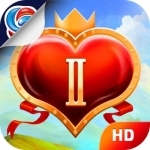
My Kingdom for the Princess II HD
Games
App
The innovative mixture of click management and building simulation still works perfectly, and some...
Ryan Hill (152 KP) rated Wonder Woman (2017) in Movies
May 18, 2019
Honestly, I don't know how anyone could even consider that there was the slightest chance of this movie not being good, and I'm gonna tell you why: this is the very first big female-led superhero movie, in which the title character also happens to be the greatest female superhero in history. If you really think that Patty Jenkins, also the first woman to ever direct a superhero movie of this caliber in a industry where women barely stand any chances to get to direct major blockbusters, would let this movie be anything less than great... You've got another thing coming, mate.
Wonder Woman is a traditional, oldschool superhero movie, but the first essentially feminist one at it, and they couldn't have chosen a better setting to tell this story, or a better character to star in it. The movie's social comments are strong and constantly present, but never forced, because it is only natural: by placing Diana, a princess raised in an island of warrior women, in the middle of the reality of World War I, the absurdities of the feminine role in the world - and so many other human corruptions - automatically come to light. The way Diana reacts to this world raises a great sense of awareness, with a touch of poignant humor to it. There is a very funny subtle arc of her wanting to take out her cloak, but not being able to because her armor is "barely any clothes", hinting not only at society's sexist feminine dressing code - which is still a thing today -, but also gradually adding power to the iconography of Wonder Woman in full costume; this is Wonder Woman's much awaited debut on the big screen in a solo movie, and like Superman and Batman before her, her first appearance needed to be something incredibly striking. Patty knew that, Gal knew that, and they made it happen. Even if we already saw her in BVS, the very first time Wonder Woman walks up in full costume here is undoubtedly one of the most iconic moments in superhero cinema.
Jenkins is extremely devoted to giving Wonder Woman the iconic debut film she deserves, and she nails it - there's quite a bit of remarkable shots and set pieces that let out the same imagetic power as in Donner's Superman, Burton's Batman or even Raimi's Spider-Man, and I must highlight the No Man's Land sequence. It's my favorite part of the movie; Jenkins and Heinberg carefully work on Diana's mindset as she first witness the horrors of human war, not being able to help everyone, horses being hurt so they can move faster, a mother and a child begging for help, and it all leads up to the powerful moment of a woman crossing the land no man could cross - and Heinberg's dialogue doesn't rely on obvious statements such as "fortunately I'm a woman" (I'm looking at you, Batwoman trailer), it simply lets the image strike us, because it is powerful enough by itself, and boy did that cause some serious goosebumps.
Speaking of dialogue... It's so terrific, so well written. The exchanges between Diana and Steve Trevor are very clever and funny, but most of all natural. All the characters are also extremely likable; Allan Heinberg's writing knows that not all of them can be given deep development, but nonetheless he gives them stories, personalities and purposes, and that - plus the charismatic performances - makes them very empathetic. The villains are not as remarkable as in some of the other DCEU films, but they didn't need to be; the movie doesn't require in-depth arcs from its villains. They have a strong presence when they're in scene and a well elaborated lore, and that's everything they need.
Contrary to the Nordic mythology depicted in the MCU, here we are talking about real gods, true deities, not superpowerful aliens that only strike a similar image - and that also brings a few narrative dangers along with it, after all, it was in greek mythological stories that the concept of Deus Ex Machina first appeared. Heinberg's screenplay, though, makes a few clever twists in that mythology to avoid easy solutions, which adds to the storytelling, the world building and the developing of the themes as well. The lore surrounding the God of War Ares, for example, is not a simple Diabolus Ex Machina as "he influences men to war and if you kill him every man goes back to being good and everything's alright", no, it's more narratively complicated and socially engaging than that.
And Gal Gadot... I'm at a loss for words. I'll confess right here that when she was first announced as Wonder Woman, I was one of the few who were very opposed to that casting. I've never been so wrong in my life, and I've never been so happy about it. She really is Wonder Woman. She's so graceful and adorable, but a major badass when she needs to be. The way she moves, the way she curiously looks at things, the way she speaks, and the way she incarnates Diana's evolving from her naive beginnings to the wise warrior... She's not only an icon, she's a true hero. Comparisons to Christopher Reeve's Superman were made for good reasons.
Chris Pine is also great, he walks perfectly in the line between funny and serious, Steve Trevor is a darling character and his chemistry with Gal is on point. Their relationship is very well constructed and becomes highly emotional by the end - there are scenes that filled my heart with joy, and others that made it ache.
The action is exciting and full of originality, and I like how Jenkins uses slow-motion differently than Zack Snyder. I know that Snyder helped her direct some of the action sequences, which is understandable since Jenkins had no experience with this type of movie, but you can tell it's not the same. In the fights themselves, there's this feel of sensibility to how these people react to Diana, and it's slightly different from the typical "regular people react to superhumans among them" trope. The cinematography is very keen on portraying the difference between Themyscira - an island of colors and natural beauty - and "jolly ol' London" - desaturated and smoggy, a scenario in which Diana's colorful armor shines in a most beautiful contrast.
And the soundtrack. Rupert Gregson-Williams made a beautiful score that brings out the best in every scene. It's heroic, very heartfelt, and loyal to the foundations of what makes superhero music so memorable. Gregson-Williams adds new themes to compose Wonder Woman's musical identity, but Hans Zimmer's main theme from BVS still lives, and it plays in some heart-pounding scenes. I love that they're dedicating that much attention to the musical continuity, because amongst Marvel's many qualities, they're doing a lousy job in that area. Wonder Woman's theme is the most catchy superhero theme in a long time, it quickly gained a lot of appreciation and by continuing on using it, Gregson-Williams collaborates to making Wonder Woman the strong cinematic icon she's setting out to be.
The irregular reception of previous DCEU movies also extols the impact of Wonder Woman, as do the distinct styles between the films. One of the DCEU's biggest virtues is that singularity of each film; be it a near disaster movie epic such as Man Of Steel, a complex deconstruction of heroic values such as Batman v Superman, an stylish chaos such as Suicide Squad or a traditional, graceful superhero film such as Wonder Woman, these movies are all in the same universe, and that very fact is an example of its richness. A lot of people will think Wonder Woman is the best DCEU movie of the lot, some will stick to BVS, others to MOS, maybe for some it's Shazam, but that's the fun of it: we can discuss this forever. Each of these movies mean different things to different people, we're way past simply labelling one as "better" and the other as "worse".
Wonder Woman, however, is not simply a movie about a very strong woman. It's an achievement for every woman. There were tons of girls dressed up as Wonder Woman in the theater, and just seeing how ecstatic they were after the movie brought me joy. There were tons of applause. It's a mark. Be that as it may, Wonder Woman will be remembered as the most impactful superhero film of its time. In 1978, Superman showed to the world how a man could fly; in 2017, Wonder Woman showed to the world how a woman can fight.
Mandy and G.D. Burkhead (26 KP) rated The Grey Bastards in Books
May 20, 2018
But don’t be fooled into thinking this book will be any less intelligent, epic, or heartfelt for it. The Grey Bastards is all of that and more. The novel follows Jackal, a half-breed orc living in the Lot Lands, the barren desert wasteland of Hispartha. He is a Grey Bastard, one of many half-orc hoofs, each protecting its own small town in the Lots. Members of a hoof are elite warriors that ride out on their Barbarians—giant warthogs—and slaughter invading bands of orcs.
Hispartha is a vibrant world, with a mix of fantastical species (orcs, half-orcs, elves, humans, halflings, and centaurs) with unique cultures and religions. Hispartha itself takes influences from Reconquista Spain, which is especially noticeable in the nomenclature, geography, and architecture.
The primarily atheistic half-orcs recently won their freedom from slavery at the hands of humans. Humans treat the half-orcs like second-class citizens, but tolerate them because of their strength, using them as a shield from the orcs. The elves are beautiful, reclusive, and probably the most cliché; there is one important elf character, but for the most part, we don’t get a good look into their culture in the first book. The centaurs worship Romanesque deities and go on crazed, Bacchanalian killing sprees during the blood moon.
Besides the half-orcs, the halflings are perhaps the most interesting. I still have a hard time visualizing them, trying to figure out if they are thin, pixie-like creatures or more stocky like dwarves. Their small stature and black skin makes me think of pygmies. They worship a god they expect will reincarnate someday, (view spoiler)
One thing that has always annoyed me about fantasy is that many authors feel that the characters of their world, being pre-industrial and thus “medieval,” must all be white, straight, Christian (or proto-Christian), cisgender males. If a woman appears at all is to act as the damsel, prize, or, if she’s lucky, a mystical enchantress to guide the heroes or provide a maguffin. It has come to the point in which this has become a tired and accepted baseline for fantasy. I don’t necessarily think that these fantasy authors are intentionally trying to be uninclusive, so much as they just seem to forget that other groups of people can exist in fantasy thanks to its fathers, Tolkien and Lewis.
But enough with my rant, the purpose of which is to highlight why I am often drawn to grimdark fantasy: at the very least I know that women, people of color, lgbt people, and other religions will be present, even if they are often victimized. This is because grimdark fantasy honestly depicts the horrors of rape, war, murder, slavery, and racism (or rather, speciesism in most cases) and has heroes and villains that are morally grey.
However, many authors describe these atrocities and then leave it at that, assuming that simply depicting them is enough to make a book mature and meaningful. They often fail to make any sort of statement on evil, and thus can seem to be, at best, blindly accepting it and, at worst, glorifying it (this often happens in the cases of magnificent bastard characters, who are absolute monsters but are so charming you almost respect or like them).
Jonathan French, however, does not fall short of the mark as many authors do, and for two main reasons: humor and humanity.
Let’s start with the humor. This book is hilarious. I mean in the I literally laughed out loud while reading it way. Sure, the jokes are often crass, but I have a dirty mind, so inappropriate humor is my favorite kind. The dialogue is especially top-notch, and the interactions between Jackal and his friends Fetching and Oats feel genuine, full of in-jokes, insults, and sexually-charged humor, all of which are exactly how I interact with my own close friends. And every major character in this book is so damn witty that I’m honestly jealous of them. If I could be quick enough to make even one of their zingers at the right time in a conversation, I would feel proud of myself for the rest of the day.
Humor is necessary to prevent any grimdark fantasy from becoming too over-the-top or depressing. And honestly, humor is needed most when the world is a dark and frightening place. But too much humor could accidentally downplay the point of grimdark: the brutally honest depiction of the atrocities that people are capable of.
And this is where it is important to have an element of humanity. By this I mean that the “good guys” must make some action or statement on those atrocities. Too often I read or watch hardened badass characters with no emotion who can watch a person get tortured and killed without flinching (maybe even do it themselves) and who never stop to question the nature of their society (even as part of their character growth), and I have difficulty finding them at all relatable or even the least bit interesting.
Now, often for this type of character, he or she is dead inside as a coping mechanism and part of their character arc is learning to allow themselves to feel their repressed emotions: heartbreak, anger, fear, etc. This can be done very well (see The Hunger Games for a great example—dystopian scifi and grimdark fantasy have very similar undertones). But most times it just ends up falling flat.
But Jackal already starts out with more personality than most grimdark protagonists. He is a humorous and light-hearted person. Sure, he lives in a desert wasteland, his race is entirely created by rape, he’s treated as a second-class citizen, and his life and the lives of those around him are in constant danger of rape and/or murder by invading orcs or blood-crazed centaurs. But despite all of that, he still has a sense of humor, people he loves, a community, ambitions, moral code, and all of the other things that these protagonists are often lacking.
Don’t get me wrong, he can be an asshole, and he’s often acts rashly before he thinks. But the scene that really stuck with me the most was [when Jackal and the wizard Crafty come across an unconscious elf sex-slave. I was expecting him to say something along the lines of “There’s nothing we can do for her, we have to save ourselves” or “This isn’t any of our business” or “It would be best to just put her out of her mercy.” These are the typical lines that a grimdark protagonist might utter while their companion—accused of being a bleeding heart—frees the slave. But this was not the case. Jackal and Crafty both immediately set out to free the girl and steal her away from her owner, despite the danger to themselves. And when he comes across an entire castle-full of these women, Jackal again sets about freeing them without a moment’s hesitation. (hide spoiler)]
And it’s no surprise that Jackal has a serious problem with rape. As I’ve mentioned before, half-orcs are entirely the product of roving bands of orcs raping human, elven, or even half-orc women. [When Jackal learns that Starling, the elf slave he rescued, is pregnant with a half-orc baby, he is not only furious with the orcs that gang-raped her, but also disturbed by the fact that elven society shuns any of their women who have been raped, and that these victims often end up taking their own lives rather than give birth to an impure half-elf. (hide spoiler)]
Furthermore, Jackal, unlike many people in Hispartha, does not buy into misogyny or sexism. His best friend Fetching is the first female half-orc to have joined a group of riders. Not only does Jackal respect Fetching, he understands the emotional turmoil that she is dealing with being the first female rider and how she overcompensates as a result to earn the respect of the other men.
While there is quite a bit of speciesism (pretty much none of the species get along with one another), the inhabitants of Hispartha come in every skin color and nobody gives a damn. Furthermore, sexuality is primarily treated as each person’s individual preference and nobody else’s business. While characters may make jokes about acting “backy” (gay), these are made in good humor between friends, and nobody gets particularly offended by them. Fetching is herself openly bisexual (though she seems to suppress her heterosexual desires more than her homosexual ones out of that same need to be “one of the boys”), and Oats and Jackal are one of my favorite bromantic pairings.
Grimdark fantasy can often be depressing to read. But Jonathan French does an excellent job of infusing hope into his narrative. The story actually has a happier ending than I was expecting. [I was especially pleased when Jackal chooses Fetching to be the new leader of the hoof (she is voted in unanimously by the other riders). I find it incredibly annoying in books and movies when revolutionaries/usurpers decide to appoint themselves leaders, as the former does not qualify you for the latter. Part of Jackal’s arc is realizing that he is not meant to lead the hoof like he’d once desired. (hide spoiler)]
For the sequel, The True Bastards, I’m hoping to see [if a cure can be found for the thrice-blood child now infected with plague, how Fetching is doing leading the hoof, and what the mysterious Starling is up to (I don’t buy for a second that she’s killed herself). And of course, I fully expect that Jackal is going to have to fulfill his empty promise to the halfling’s resurrected god, Belico.
